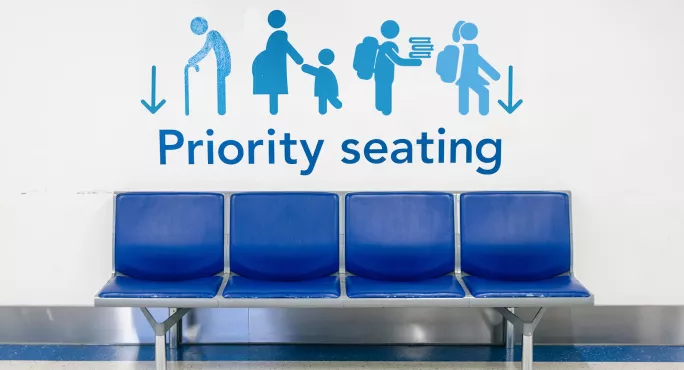- Home
- Analysis
- Specialist Sector
- Why special school students need access to mainstream qualifications
Why special school students need access to mainstream qualifications

Right now, thousands of mainstream students are thinking about GCSE results day and how the grades they receive will play a role in their future life choices.
However, there are many special and alternative provision (AP) schools up and down the country where students will also be awaiting results - with some beautiful, untold stories beneath these achievements.
Because, while one of the privileges of special schools is they are free from the pressures of the high-stakes accountability measures that define our mainstream secondary system - for many of their students, gaining accreditations like GCSEs is key to their future, too.
Certainly in our trust, wherever students can access the GCSE route, this takes priority - as we know they remain the most recognised and valued qualifications for most employers and is something families often hope to see their children achieve.
Changing cohorts
It was not always like this, but special schools have changed over recent years as the cohorts of students they serve has been expanded at both ends of the academic spectrum.
For example, statistically, the growing needs of many students are due to autism, anxiety or social, emotional and mental health needs: none of which necessarily mean they are not academically able, but they have different barriers to learning from students typically placed in the system 20 years ago.
As such, many more of our schools have evolved to now offer GCSEs and, what’s more, have adapted their provision to meet this need.
One of our academies, Becton School, is a hospital school that also provides a medical outreach offer for students in Sheffield deemed too unwell to attend their mainstream school.
The majority of these students don’t have an education, health and care plan (EHCP), but barriers to accessing full-time education can be significant.
Over time, we’ve seen a growing number of referrals for this service when students reach late year 10 and early Year 11, which limits the rehabilitation time we have to help them attain the best grades they can.
Strategies for success
To mitigate this, we’ve expanded our sixth-form offer so we can - potentially - meet their needs over a longer period of time to ensure they get the best GCSE grades they can.
In some of our more “traditional” special schools, we typically have students with us for a longer period, which allows us to optimise their GCSE outcomes, if it is the right pathway for them.
At Bader Academy, a free special school we opened during the pandemic in 2020, we have many examples of success over the last two years.
One young person had suffered extreme anxiety and did not believe she would be able to sit in an exam room and participate in exam season.
Yet, with personalised support, nurture and a small-step approach, she was able to achieve high grades in both maths and English GCSE exams (5 and 6 respectively) and transition to mainstream college.
Another example saw a young man in Year 10 sit his foundation tier maths GCSE, gaining a Grade 5. Having been through that process, his anxiety around exams was reduced and he then sat his higher tier maths paper at the end of Year 11 with confidence.
Life-changing impact
Compared to the cohorts that go through mainstream secondary, these examples may seem small fry.
However, the impact is huge and will profoundly change the destiny of these learners - setting them on a pathway to possibly mainstream college and certainly mainstream society.
When you extrapolate out the impact of having one adult independently included in mainstream society, the benefits to the individual are huge, as are the savings to the state.
Sadly, while we have seen an increase in students sitting GCSEs, there is no doubt that there has been a deliberate and systematic reduction in applied general qualifications over recent years.
The intention of the past government to ditch a wide number of BTECs by August 2025 will leave some students without an accreditation route for their areas of expertise. News that this is to be looked at again by the new government is certainly welcome.
After all, all qualifications our learners can achieve are vital for their life choices and we should ensure their ambitions have the potential to be realised through qualifications - whether GCSEs or something else most suitable for them.
Warren Carratt is the CEO of Nexus Multi-Academy Trust
For the latest education news and analysis delivered directly to your inbox every weekday morning, sign up to the Tes Daily newsletter
You need a Tes subscription to read this article
Subscribe now to read this article and get other subscriber-only content:
- Unlimited access to all Tes magazine content
- Exclusive subscriber-only stories
- Award-winning email newsletters
Already a subscriber? Log in
You need a subscription to read this article
Subscribe now to read this article and get other subscriber-only content, including:
- Unlimited access to all Tes magazine content
- Exclusive subscriber-only stories
- Award-winning email newsletters
topics in this article



